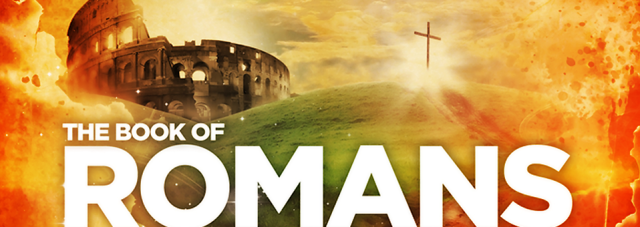
“CHRIST AND THE END TIMES—BELIEVERS WILL SUFFER”
One of the most sobering sections in all of Scripture is where the eschaton—the end times—is taught. It’s sobering because of how the biblical texts describe the horrific events that will transpire. In this chapter, perhaps the critical verse is (v.31):
“Heaven and earth will pass away, but My words will not pass away”
Maybe nothing is steadier to our understanding than the heavens above us and the earth below. We take these for granted. Nevertheless, they are preaching something of eternal weight and glory that we ought to heed. The heavens and the earth were here before we arrived on planet earth and they’ll be here long after our existence is forgotten. But the one holding it all together is declaring that his words are more solid, more sure than these phenomenal gifts of the heavens and the earth.
Thus what Jesus is prophesying will certainly come to pass. It’s surer than the earth below and the heavens above. In response to an observation one of Jesus’ disciples made, he said:
“Teacher, behold what wonderful stones and what wonderful buildings!” 2 And Jesus said to him, “Do you see these great buildings? Not one stone will be left upon another which will not be torn down.” (vv.1-2)
Later on Jesus’ disciples asked him to explain what he meant in (vv.3-4) about the last days. The first words recorded are; “See to it that no one misleads you….” Jesus said that because many false Christs and prophets will arise and mislead many (vv.5-6, 22). Several observations warrant their heeding Christ’s warnings:
First, “Many will come in my name saying, ‘I am he’ and will mislead many.” (v.6) Deception always lurks in the shadows and no deception is as lethal as religious is manifold. As in the Garden when Eve was deceived by the serpent, so too Christ’s hearers must guard against the deceiver. Thus, deception is assured!
Second, wars, rumors of wars, natural disasters, and famines will occur (vv.7-8) but these are only “birth pangs”. Just what is meant by “birth pangs” I’m not sure, but contextually it seems that predetermined fearful events caused by human and divine agency must precede the end—the eschaton. This also is assured.
Third, religious persecution will manifest, personal suffering will be endured at the hands of Jewish leadership, “you will be flogged in the synagogues…” followed by civic persecution, “you will stand before governors and kings, for My sake as a testimony to them.” (v.9) This gospel message is costly and must be preached to all nations (v.10). Arrests await but God’s presence will be there to shepherd the disciples in their interrogations:
“When they arrest you and hand you over, do not worry beforehand about what you are to say, but say whatever is given you in that hour; for it is not you who speak, but it is the Holy Spirit.” (v.11)
Thus, for Christ’s sake—His testimony will be heard by all who rule. This too is assured. This not only reminds me of Peter, John, and Paul in the Acts of the Apostles under Roman rule, but also of Daniel and his three friends in Babylonian captivity under king Nebuchadnezzar. These men were severely tested but nevertheless remained faithful to the God of the covenant.
Fourth, the pain will not end with strangers but will “come home” when betrayal occurs via family members, thus showing their hatred of Christ and putting to death his messengers (vv.12-13). To be hated by enemies is understandable, by countrymen it’s painful though bearable, but to be hated by family—brother, father, children—it’s heart breaking. This is the cost of discipleship; it’s the cost of loving Jesus, it’s also a mark of a true believer.
Jesus continues, “You will be hated by all because of My name, but the one who endures to the end, he will be saved” (v.13). Notice how the amplification of fear comes in degrees: it starts with deceivers, goes to natural disasters, then is followed by persecution form outsiders, and culminates in death from those closest to us.
Recall that Christ’s call to follow Him must trump our dearest relationships—this is true discipleship, this according to Him is what will show our worthiness. Worthy not because of our smarts, nor our status in life but because of our choice of treasure—His loving kindness is better than life! No one can compare, he’s Creator, He’s our Redeemer, and He is Judge!
Just as the architect of a house is more glorious then his creation by virtue of essence, so too is God when compared to the creature. But the idolatrous move of treasuring the creature above the Creator is what dooms us all. Therefore, whatever it is we do, may it not be treasuring the creature above the Creator. Thus, death by family members because of the name of Christ is assured.
Fifth, there’s an end toward which history is moving and it can’t be stopped nor avoided. There’s the Tribulation (vv.14-23) and the Post-tribulation period (vv.24-31) where signs are given to describe it: “But when you see the abomination of desolation standing where it should not be (let the reader understand)…” (v.14) Here, there’s an understanding, a knowledge his hearers can grasp and know the point of which is a tribulation unlike any that preceded it (E.g., Flood, Babel, Exodus?) Consider Jesus:
“For those days will be a time of tribulation such as has not occurred since the beginning of the creation which God created until now, and never will” (v.19)
Scripture has recorded some horrible events but here Jesus is saying to us “you ain’t seen nothing yet!” These future events have no comparison which reminds me of the book of Revelation—God’s last act—where He completes His redemptive plan for those who love Him. Note how Jesus says these things in advance so that when they are occurring, his hearers will trust his word.
This time will see Christ’s return and the final redemption of the elect, but unlike the first tribulation period, where the hearer is to look for signs and thus act accordingly (vv.14-17), in this second tribulation the time of arrival is only known to the Father, nevertheless, the season does not seem to be hidden from the hearer (vv.28-37).
The doctrine of judgment in Scripture is the first one that came under attack (Gen.3) and continues to come under negative scrutiny. Recall that in the OT where signs and wonders occur; two things are evident people experience: Rescue from God’s wrath or the Reception of His wrath (E.g., Flood, Babel, Sodom/Gomorrah, Exodus, Possessing the Land, Elijah and Baal Prophets, etc.) so too in the NT (Book of Revelation). Why judgment? One may ask and Christ would respond,
“because you are bad at the core, your sin has separated you justly from your Creator, but I have come to fix that problem—that’s why I died and rose from the grave. I’m your only hope, no others can help.”
It’s in light of this that the hearer is to be on the alert! They are to be anticipating these moments when what precedes is evident to them. Wow! Many things did take place already but there are things yet to come, obviously since we are here. But in view of this text, what manner of life ought to professing Christians live?











